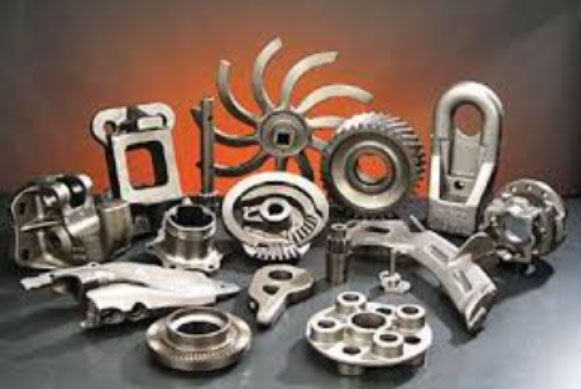Ductile iron casting, also known as nodular iron casting or spheroidal graphite iron casting, is a type of cast iron that exhibits superior strength, durability, and other desirable properties. Let’s delve into the key aspects of ductile iron casting and how it unleashes the strength and durability of iron:

1. Microstructure: The microstructure of ductile iron is characterized by graphite nodules embedded in a matrix of ferrite and/or pearlite. These graphite nodules provide the material with its unique properties, such as increased ductility, toughness, and resistance to cracking and fracturing.
2. Tensile Strength and Yield Strength: Ductile iron has higher tensile strength and yield strength compared to other cast irons, including grey cast iron. It can withstand higher loads and forces without deforming or breaking, making it suitable for applications that require structural integrity and resistance to heavy loads.
3. Impact Resistance: Ductile iron exhibits excellent impact resistance due to its ductile nature. It can absorb and dissipate energy when subjected to sudden shocks or impacts, preventing catastrophic failure and enhancing the safety of components and structures.
4. Corrosion Resistance: Ductile iron casting offers good resistance to corrosion, especially in comparison to materials like steel. Its corrosion resistance is particularly beneficial in applications where the components come into contact with moisture, chemicals, or other corrosive substances.
5. Fatigue Resistance: Ductile iron has a high resistance to fatigue failure, which refers to the ability to withstand repeated loading and unloading cycles without developing cracks or fractures. This property makes it suitable for applications involving cyclic or dynamic loading, such as machinery and equipment subjected to constant stress or vibration.
6. Machinability: Ductile iron is known for its good machinability, allowing for the production of complex shapes and precise components. It can be easily machined and fabricated into various forms, making it versatile and adaptable to different manufacturing processes.
7. Heat Resistance: Ductile iron has good heat resistance, enabling it to retain its strength and dimensional stability even at high temperatures. This property makes it suitable for applications involving elevated temperatures, such as engine components, exhaust systems, and industrial furnaces.
8. Cost-Effectiveness: Ductile iron casting offers a cost-effective solution for many applications. It has a lower material cost compared to alternative materials like steel, while still providing excellent strength, durability, and performance. Additionally, its long service life and low maintenance requirements contribute to cost savings over time.
Ductile iron casting’s unique combination of strength, durability, impact resistance, corrosion resistance, and cost-effectiveness makes it a preferred choice in a wide range of applications. It has become a fundamental material in industries such as automotive, machinery, construction, power generation, and more, where robust and reliable components are essential.
